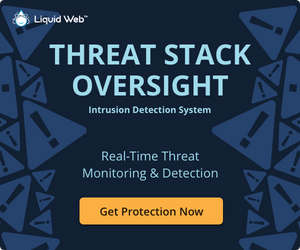6 Types of SSL Certificates for Your Website
The modern internet can be a daunting place for the average website visitor. Building customer trust and confidence in your business and, by extension, your website should be a top priority. The best way to accomplish this is to enable SSL encryption on your website, which ensures secure connections and protects your visitors’ personal information. To do this, you’ll need to learn more about what SSL is and the six SSL certification types.
What is SSL?
SSL stands for secure sockets layer and is a cryptographic protocol that secures data between two machines via encryption. Without SSL, anyone can view all the personal information you send to a server in plain text, including passwords and credit card numbers, and easily steal it, making SSL crucial for anyone looking to build a website. That’s why all websites today should have a digital certificate for SSL encryption installed.
What is an SSL Certificate?
SSL certificates assign a specific cryptographic key to your particular organization’s details (e.g., a domain name) to secure your website when users are required to submit any sensitive information – this could be filling out forms or logging into their account.
When an SSL certificate is active on your server, your URL will change from HTTP to HTTPS and feature a grey padlock next to it in all web browsers. Your website visitors will recognize these visual cues and know your website is trustworthy. Having a certificate showing on your site in the address bar is similar to registered trademarks in this way.
In addition, search engines like Google now incentivize website owners to install SSL certificates by boosting their web rankings.
How Do SSL Certificates Work?
In essence, SSL certificates are data files used to verify the secure connection between your website and web server based on public key cryptography.
Your private key is known to your server and can be used to encrypt any message sent to your website. But this message can only be decrypted using the public key contained in your certificate.
SSL certificates are generated and issued by a trusted Certificate Authority (CA). There are several types of certificates, and all are based on their validation levels.
Benefits of SSL Certificates
So, why go to the trouble of enabling any of the six certificate types on your site? Here are the primary benefits you can expect from your website certificate:
- Increased security – When you enable any of the SSL certificate types on your site, a level of verification is required. The vendor providing the certificate will research to see that your business does, in fact, own your domain. The certificate also encrypts any sensitive information users provide while visiting your site.
- Improved user trust – In addition to site encryption, SSL certificates prevent web browsers from flagging your site as insecure. Without a certificate, visitors will see a big red NOT SECURE warning upon visiting your page, causing them to leave almost immediately.
- Increased search engine ranking – Google uses SSL certificates as a ranking signal for internet search results. Supporting your website with secure HTTPS pages increases your website’s security and creates a safer, improved user experience for your site visitors – and the user experience is what Google is all about.
- Reduced bounce rate – The feeling of security an SSL certificate gives your site will reduce the number of visitors that leave. Offering encryption for their personal data and not having the red Google warning will make more users feel comfortable visiting your site – reducing the number that leave abruptly (your bounce rate) and, hopefully, increasing conversions.
Types of SSL Certificates
Here are the six types of SSL certificates to consider:
- Extended Validation Certificates (EV SSL)
- Organization Validated Certificates (OV SSL)
- Domain Validated Certificates (DV SSL)
- Wildcard SSL Certificate
- Multi-Domain SSL Certificate (MDC)
- Unified Communications Certificate (UCC)
You might be asking yourself, “What type of SSL certificate do I need?” To pick one, let’s discuss the essential differences between them first.
1. Extended Validation Certificates (EV SSL)
The highest-ranking and most expensive SSL certificate type is an Extended Validation Certificate.
Setting up an EV certificate requires the website owner to undergo a standardized identity verification process to confirm that they have exclusive rights to their domain.
Use Cases for EV SSL Certificates
Since EV certificates are expensive and require an extended verification process, they are used mainly by high-profile websites that require a lot of personal information from their visitors or frequently collect online payments (e.g., banks or medical providers).

2. Organization Validated Certificates (OV SSL)
The Organization Validation SSL certificate’s primary purpose is to encrypt sensitive information during transactions. The OV certificate has a high assurance, similar to the EV certificate, and is also used to validate business credibility.
OV SSL certificates are the second highest in price. To obtain them, website owners need to complete a substantial validation process administered by a Certification Authority, which investigates the website owner to see if they have the right to their specific domain name.
Use Cases for OV SSL Certificates
OV certificates are often required for commercial and public-facing websites that collect and store customer information (e.g., web apps).
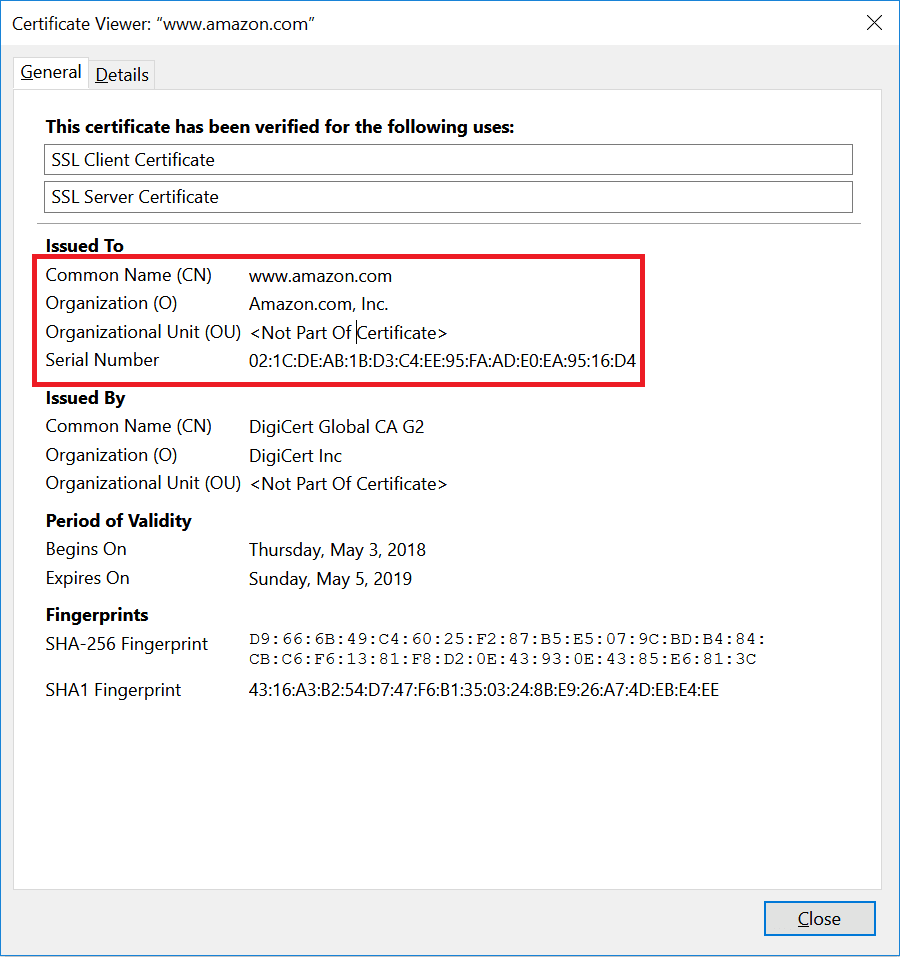
3. Domain Validated Certificates (DV SSL)
Compared to other SSLs, Domain Validation SSL certificates have low assurance and minimal encryption. Hence, the validation process to obtain this certificate type is minimal. The process only requires website owners to prove domain ownership by responding to an email or phone call.
Use Cases for DV SSL Certificates
As DV certificates are one of the least expensive and fastest types to obtain, they are often used by blogs or informational websites that don’t need to provide extra assurance to their visitors.

4. Wildcard SSL Certificates
Wildcard SSL certificates are available as both OV and DV and are used to secure a base domain and unlimited subdomains. The main benefit of purchasing a wildcard certificate is that it’s cheaper than buying several single-domain certificates.
Wildcard SSL certificates have an asterisk as part of their common name. The asterisk represents any valid subdomain that has the same base domain. For example, the common name can be *.example.com, which would allow this certificate to be installed for blog.example.com and account.example.com as well.
Use Cases for Wildcard SSL Certificates
Customers can purchase either OV or DV Wildcard certificates when they need encryption for multiple subdomains, depending on their business needs. For example, this could be valuable for blogging solutions that create different subdomains for their user accounts.
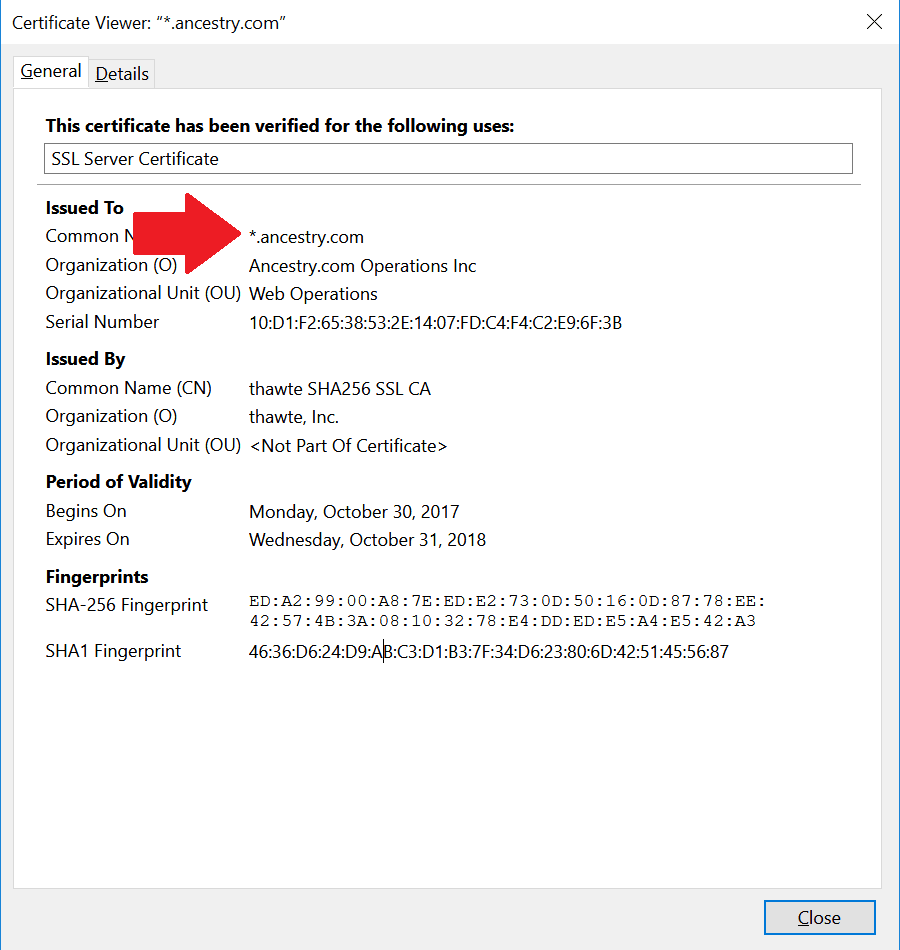
5. Multi-Domain SSL Certificates
Multi-Domain SSL certificates can secure up to 100 different domain names and subdomains using a single certificate, which helps save time and money. Businesses have control of the Subject Alternative Name (SAN) field to add, change, and delete any of the SANs as needed.
Domain Validated, Organization Validated, Extended Validated, and Wildcard certificates could be upgraded to secure multiple domains. Here are some domain name examples that can gain security with just one Multi-Domain certificate:
- www.domain.com
- www.domain.in
- www.domain.org
- domain.com
- checkout.domain.com
- mail.domain.com
- secure.exampledomain.org
- www.website.com
- www.example.co.uk
Use Cases for Multi-Domain SSL Certificates
Multi-Domain SSL certificates are often used by companies that have representations in different jurisdictions, as well as international conglomerates that need to secure different top-level domain names.
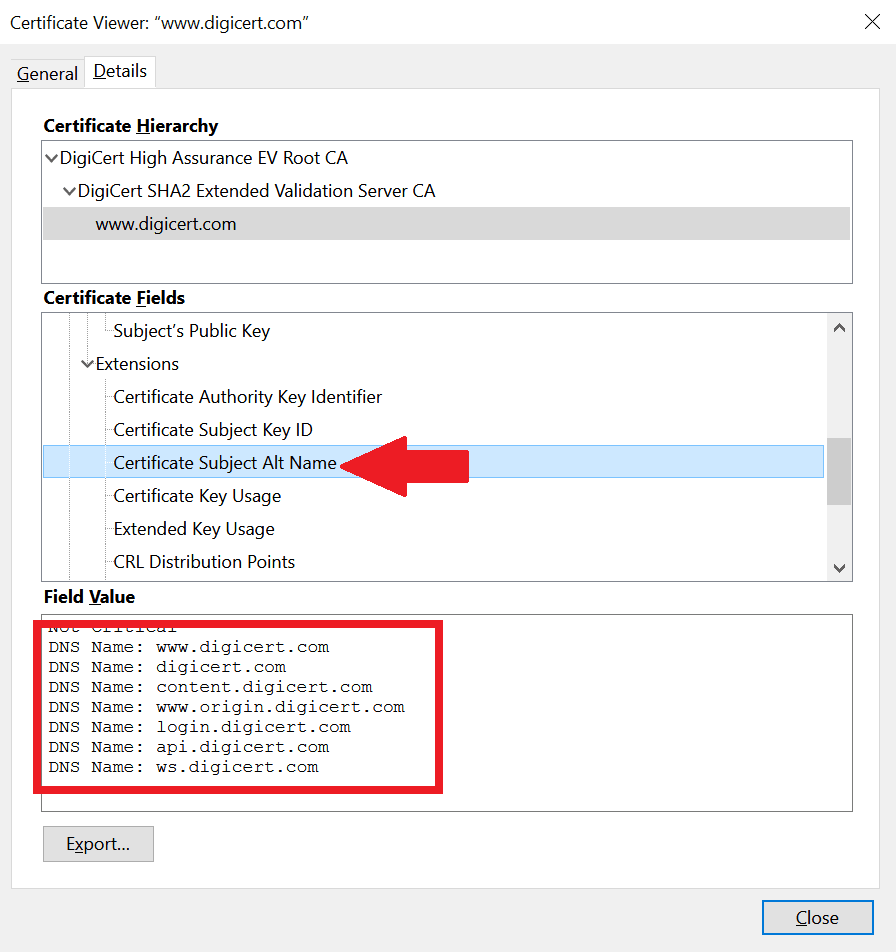
6. Unified Communications Certificates (UCC)
Unified Communications Certificates (UCC) are also considered Multi-Domain SSL Certificates and have the same benefits. UCCs can be used as EV SSL certificates.
Use Cases for Unified Communications Certificates
UCCs were initially designed to secure Microsoft Exchange and Live Communications servers. However, today, any website owner can use them to encrypt multiple domains with a single certificate.
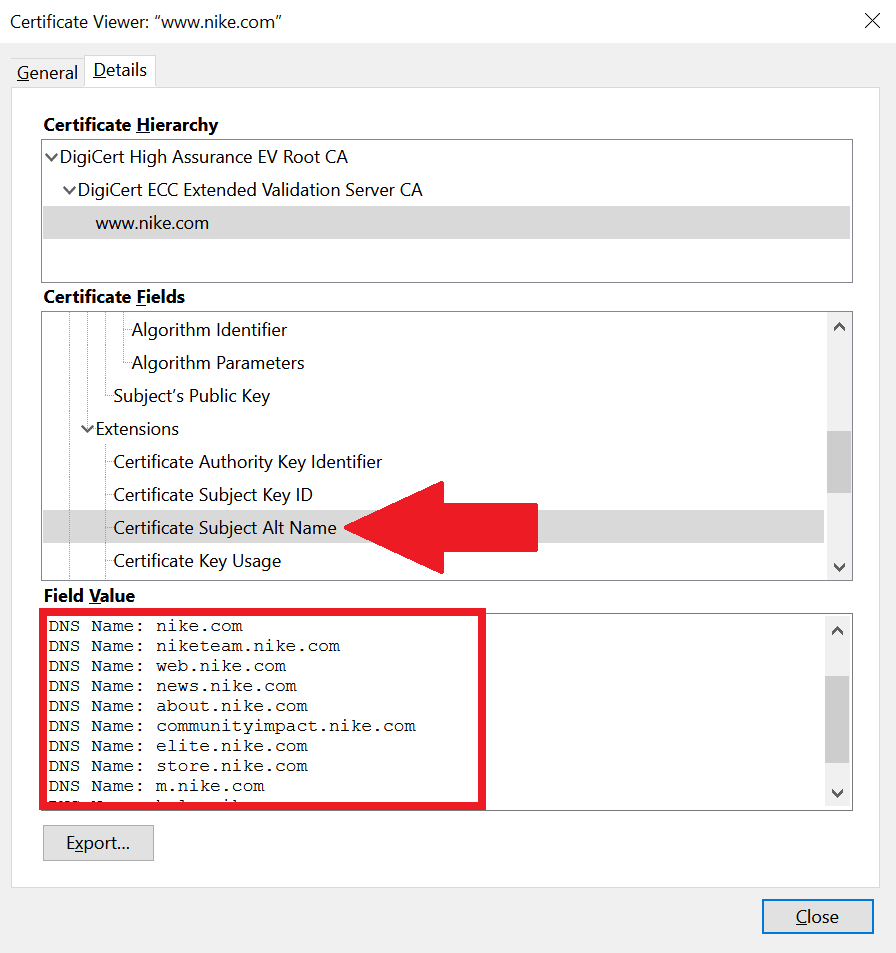
How to Choose an SSL Certificate
As we’ve seen, each certificate type has its own specific use case. The keys to picking the proper SSL certificate for your business are the number of domains you want to certify and the level of security.
If you feel your business will only need certification for only one or two domains, then single-name and wildcard certificates might be the choice for you. On the other hand, if you know your business needs multiple domains to operate, you’ll need a multi-domain certificate.
The other aspect to consider is if your industry raises security concerns. If you’re in a business sector like finance, medical, or government, your website could be handling sensitive user information countless times a day. If this sounds like you, you should consider an EV or OV certificate.
Reviewing Your SSL Certificate
The review process for your SSL certificate is straightforward, but it’s essential for reaping the security benefits that all the SSL certificate types provide. An SSL review consists of the following steps:
- Once you’ve purchased and configured your certificate, check to ensure the URLs of your web pages start with HTTPS. The S is the indication that SSL now secures your site.
- You’ll also notice a gray padlock icon next to your URL. Click that icon, and you can review all the details of your SSL certificate.
Essential SSL Takeaways
Reviewing all SSL certificate types is critical to ensuring you have the right SSL certificate securing your website. It’s a crucial step toward maintaining trust with your visitors and customers. After all, there’s nothing as important in the digital world as keeping private information safe and secure.
Here are three key SSL takeaways to remember:
And if you need to buy an SSL certificate, we offer those, too.
- If a website has HTTP instead of HTTPS, the browser sends all the information as plain text to the web server. Anyone watching that web traffic can see that information.
- If the website has an SSL certificate installed and is using HTTPS, the web traffic is encrypted. Encryption is of great importance for protecting any customer’s sensitive information.
- Lastly, Google incentivizes websites with installed SSL certificates by ranking them higher in its organic search results.
Now that you’re well acquainted with the different types of SSL certificates, keeping your site secure is probably top of mind.
At Liquid Web, we know the importance of a secure website. That’s why we include essentials like DDoS protection and a 24/7/365 dedicated team ensuring you’re clear of security threats in our hosting plans.
Check out our Liquid Web hosting plans to get started today.
SSL Certificate FAQs
How Do You Renew Your SSL Certificate?
+What Are the Risks of Not Using SSL?
+How Do I Know if a Website Uses SSL?
+Keep up to date with the latest Hosting news.



